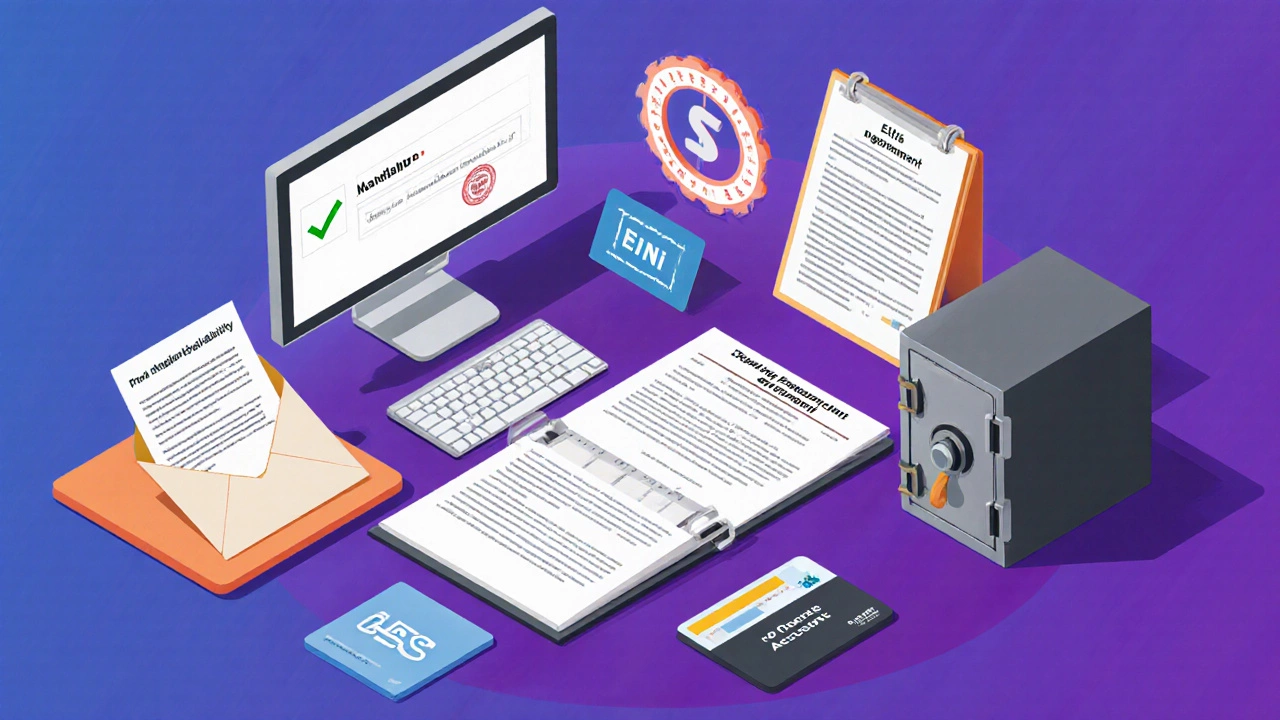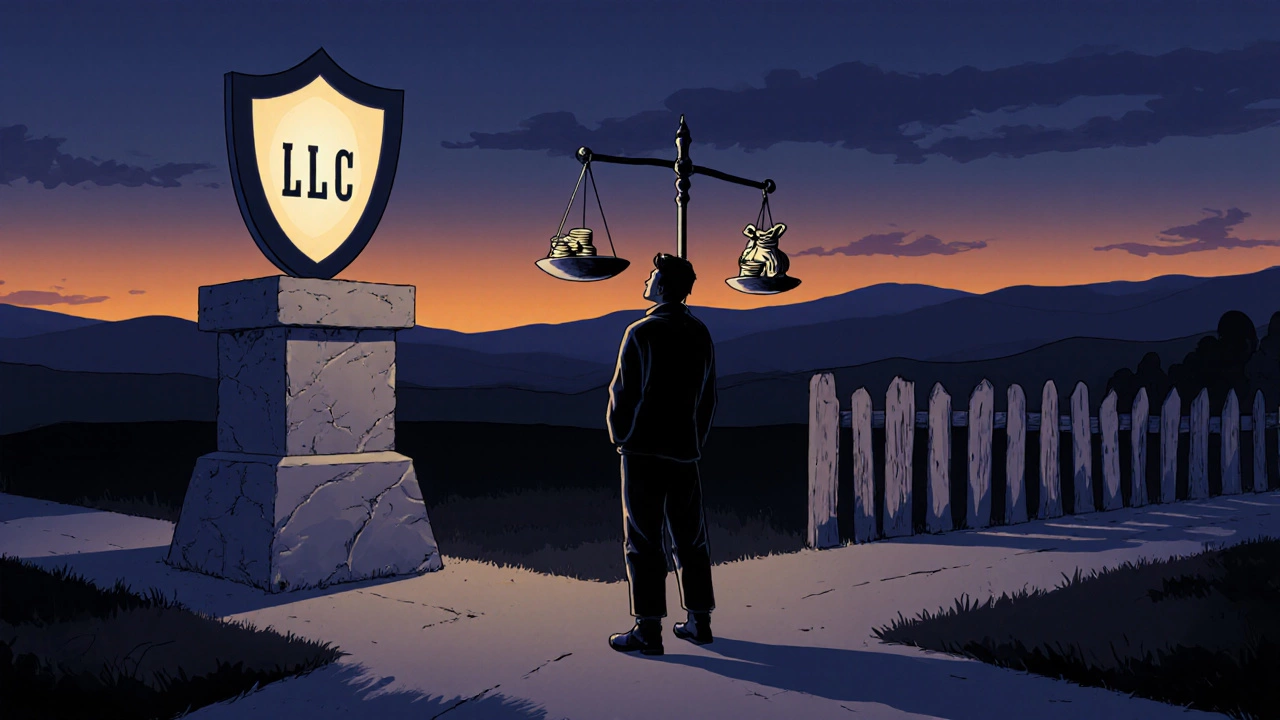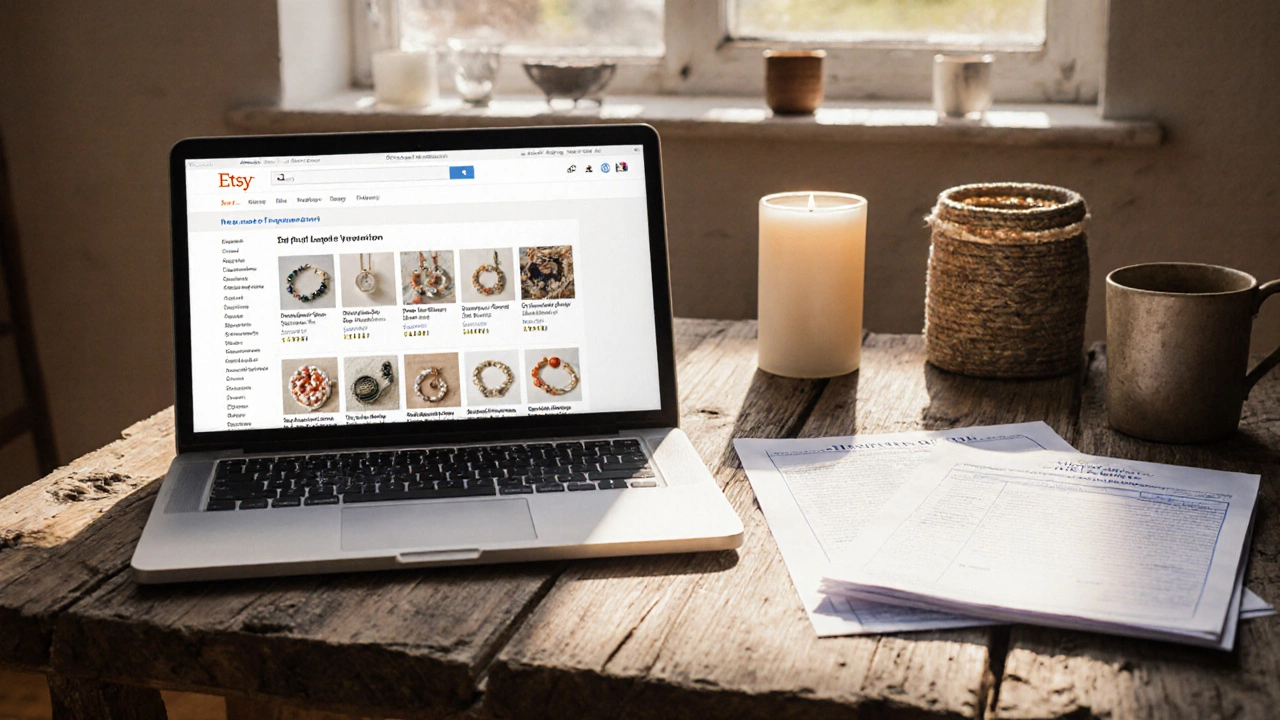Etsy Shop LLC Decision Checker
Answer the following questions about your Etsy shop to get personalized guidance:
Answer the questions above and click "Analyze My Situation" to get personalized guidance.
Key Takeaways
- LLCs protect personal assets but cost more to set up than a sole proprietorship.
- Solo Etsy sellers often start as sole proprietors and upgrade to an LLC when sales grow or risk increases.
- Forming an LLC requires a name check, registration, an EIN, and a separate business bank account.
- Tax filing for an LLC can be simple (default pass‑through) or complex if you elect corporate treatment.
- Use the decision checklist at the end to decide if the extra protection is worth the expense.
Understanding Business Structures
When you launch a shop on Etsy is a global marketplace that lets creators sell handmade, vintage, and craft‑supply items. you have to choose a legal structure. The two most common for solo sellers are the Limited Liability Company (LLC) and the Sole Proprietorship.
A Limited Liability Company (LLC) is a hybrid entity. It shields your personal assets from business debts (the “limited liability” part) while keeping tax filing simple-profits flow through to your personal return unless you elect otherwise.
A Sole Proprietorship has no legal separation. You report business income on Schedule C of your personal tax return, and you’re personally liable for any claims.
Why Etsy Sellers Consider an LLC
Here are the main reasons creators upgrade to an LLC for Etsy:
- Personal liability protection: If a customer sues over a defective product, the LLC structure keeps your home and savings out of the lawsuit’s reach.
- Professional image: Adding “LLC” to your shop name can boost buyer confidence, especially for higher‑priced items like custom furniture or jewelry.
- Tax flexibility: By default, an LLC is a pass‑through entity, but you can elect S‑corp status to potentially lower self‑employment taxes once earnings exceed a certain threshold.
- Separate banking: Opening a Business Bank Account is easier with an LLC, helping you track expenses and stay organized for tax time.
- Growth readiness: If you plan to add employees, wholesale partners, or multiple product lines, the LLC framework scales without a major overhaul.

Drawbacks and Costs
LLCs aren’t free. In the United States, you’ll pay a filing fee that ranges from $50 in some states to $500 in others. Canadian creators who operate a business in Canada must file a Business License with their province, which can add another $30‑$150.
Annual maintenance includes:
- State or provincial renewal fees (often $50‑$100).
- Separate Tax Identification Number (TIN) paperwork if you elect an EIN for the LLC.
- Potential payroll taxes if you hire help.
If you’re just testing a product line and your monthly revenue is under $500, those costs might outweigh the benefits.
How to Form an LLC for Your Etsy Shop
- Pick a name. Verify that the name is available in your state or province and that it includes the required suffix (e.g., “LLC” or “Limited Liability Company”).
- File Articles of Organization. Submit the form online or by mail to the appropriate government office. Include a registered agent address-your home address works if you’re the sole member.
- Obtain an EIN. Apply for an Employer Identification Number (EIN) through the IRS (U.S.) or CRA (Canada). It’s free and needed for tax reporting and banking.
- Draft an Operating Agreement. Even if you’re the only member, this internal document outlines ownership, profit distribution, and procedures for adding members.
- Open a Business Bank Account. Bring your formation documents and EIN to a bank. Keep all Etsy revenue and expenses separate from personal accounts.
- Register for Sales Tax. Depending on where you ship, you may need to collect and remit sales tax. Many states now require remote sellers to register once sales exceed $100,000 annually.
Once these steps are complete, update your Etsy shop policies to reflect the new legal entity. This isn’t required by Etsy, but it signals professionalism to buyers.
Tax Implications
With an LLC, the default tax treatment is a “pass‑through.” You’ll report net profit on Schedule C (U.S.) or the T2125 form (Canada) and pay self‑employment tax on that amount. If you elect S‑corp status (U.S.), you’ll run payroll for yourself, potentially reducing self‑employment tax, but you’ll need to file a corporate return.
Both U.S. and Canadian sellers must consider:
- Sales tax collection. Platforms like Etsy now automate collection in many jurisdictions, but you’re still responsible for filing the returns.
- Home‑office deductions. A portion of rent, utilities, and internet can be written off if you use a dedicated workspace.
- International shipping. If you ship from Canada to U.S. buyers, you may need to file a GST/HST return and possibly a U.S. tax nexus report.
Consult a tax professional once your annual revenue tops $30,000 to ensure you’re taking advantage of all deductions.

Alternatives to an LLC
If the costs or paperwork feel too heavy, you have other options:
- Sole Proprietorship. Easy to start; just use your personal name or “Doing Business As” (DBA) registration.
- Partnership. If you co‑create products, a partnership shares liability and profits, but each partner remains personally liable.
- Corporation. For high‑growth shops that plan to raise outside capital, a corporation provides equity options but brings more regulation.
Each structure has trade‑offs. The decision should hinge on how much risk your products carry and where you see your shop in the next three years.
Decision Checklist
- Do you sell items that could cause injury or significant financial loss if they fail?
- Is your annual revenue consistently above $10,000?
- Do you plan to hire employees or contractors?
- Will having “LLC” in your shop name help you attract higher‑ticket buyers?
- Can you afford the initial filing fee plus annual renewal costs?
If you answered “yes” to three or more, an LLC is worth serious consideration.
Frequently Asked Questions
Do I need an LLC if I only sell a few items a month?
If your sales are low and your products pose minimal risk, a sole proprietorship usually suffices. You can always upgrade later.
Can I form an LLC in the U.S. while living in Canada?
Yes. Many Canadian sellers register an LLC in a U.S. state like Delaware or Wyoming. You’ll need a registered agent in that state and must file U.S. tax returns on the LLC’s income.
How does an LLC affect my Etsy shop’s taxes?
The LLC itself is not taxed (unless you elect corporate status). Profits pass through to your personal tax return, so you still pay income and self‑employment tax, but you can deduct business expenses more cleanly.
Do I need a separate bank account for my LLC?
A separate Business Bank Account is strongly recommended. It helps keep records straight and protects the liability shield.
What are the ongoing costs of maintaining an LLC?
Typical costs include an annual state renewal fee ($50‑$150), a registered agent fee if you use a service ($100‑$300), and tax preparation fees. Some provinces in Canada have similar renewal fees.



